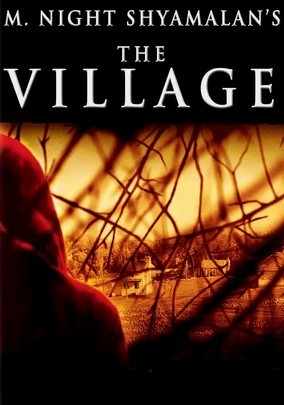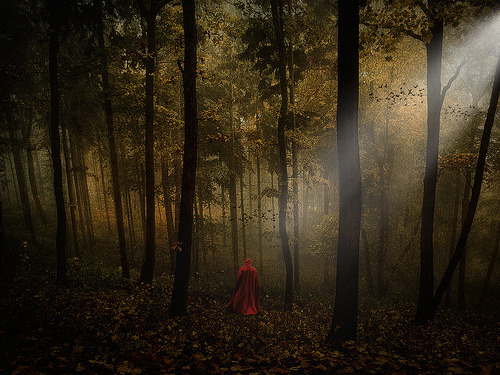The Village
On a late afternoon in the fall of 2004, my wife looked at me and said, “I think it’s time for a movie night!” Nothing else needed to be said, I was off. Just a few minutes later I found myself checking out a new thriller at the local Blockbuster Video store. It’s name, “The Village” by M. Night Shyamalan. What I knew of this Shyamalan thriller is that the setting was a late 19th century village whose inhabitants lived in continual fear of unknown creatures living in the woods just beyond the village. Out of fear, no one was allowed to leave. It was bizarre to say the least. After many twists and turns, a couple of screams, my wife digging her nails into my arm, the final scene was now upon us. I thought I knew how it was going to end. All of a sudden I was shocked. What seemed to be reality for the past two hours, was myth.

This past week while reading The Rebel Sell by Joseph Heath and Andrew Potter I was struck by the concept of “commodity fetishism” which originated with Karl Marx. Commodity fetishism can best be described as understanding the market as a system of natural laws rather than understanding it is a set of relationships held between individuals. In the end, social relationships had become objectified and many workers subsequently became alienated from their own activity.
Victims of Illusion
Prices and Wages Vary Randomly… In late September 2005 hurricane Rita was moving quickly through the Gulf of Mexico and projected to hit the east coast of Texas. Only a few weeks had passed since Hurricane Katrina had hit New Orleans, it was obvious that many were nervous. In fear of oil refineries being hit and destroyed in Texas gas prices soared. Our local Shell station had been selling gas at around $1.10 per gallon, all of a sudden raised their prices to $3.90. Crazy!!! At the end of the week, Rita changed course, never hit Texas and gas prices have never gone down since. Prices and wages don’t vary randomly. Supply and demand, wars and often networks of relationships vary these two elements.
Loss of Job Equals Bad Luck… In a merger based economy where streamline is better and bottom dollar and shareholders is all that matters. The loss of a job is often not just bad luck but rather a series of decisions made by other individuals who by choice have chosen to commodify people for the purpose of monetary gain. In hopes of squeezing just a little more profit margin out of the companies budget, those employed become dehumanized. Commodification is not bad luck, but rather the loss of humanity in the image of God.
Market variations outside of control… As the Dow Jones soars one day and then plummets the next many begin to feel as if there is no controlling market variations. The assumption is that the market acts like natural law, rather than a series of interdependent global relationships. At the core of these relationships come decisions which are often alienated from those in which the decisions have the greatest impact upon. Variations are not random. Commodification, greed and often culture interplay is at the core.
When Believing these Illusions, “No one is to blame”.
Capitalism had created a nation of clock watchers. Marx argued that the working classes were unwilling to engage in revolutionary politics because they were completely caught up in the nexus of false ideas. Commodity fethishism and alienated labor providing the ideology of capitalism. All of this was wrapped up in a bow by traditional Christian religious doctrine, which promised workers paradise in the afterlife, on the condition that they behaved themselves here and now. Thus religion was the “opiate” that kept the imposed suffering from becoming unendurable. Heath and Potter
As I jumped off the couch, screaming “no way”! I couldn’t believe that everything I had just watched for the past two hours was simply an illusion. What seemed to be a nineteenth century village being bewitched by these evil creatures was a 1970’s experiment by Edward Walker a Professor of American history at the University of Pennsylvania. The setting was a wild life preserve just outside of Philadelphia where Walker after the murder of his father had convinced a few other couples to join him in “the idea”. What came of this idea is that a group of people were going to move into the middle of this preserve, live as if it were the late nineteens hundreds, self sustain and never be hurt again. Once children came along and further generations, the illusion became reality.

Are you living the illusion?
Why do you serve in full time ministry?
Are you just punching the clock, or do you try to leave the village?
Leave a Reply
You must be logged in to post a comment.